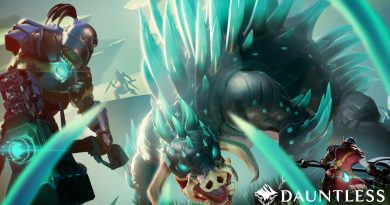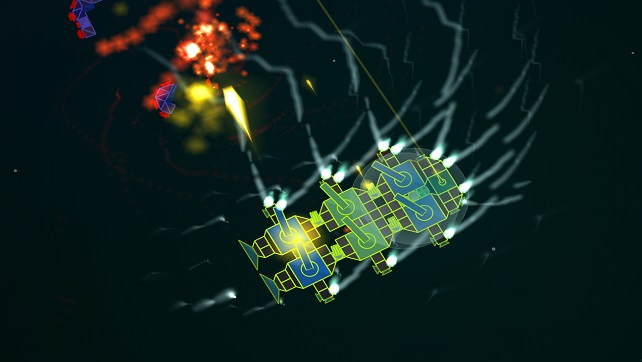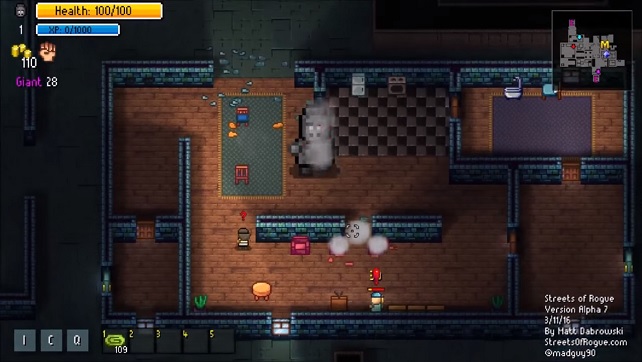(Review) Legrand Legacy: Tale of the Fatebounds
With what looks like an attempt at nostalgia for the PlayStation 2 era of RPGs, Legrand Legacy: Tale of the Fatebounds comes out looking strong. With an interesting aesthetic and combat with similar attributes to the likes of The Legend of Dragoon, it doesn’t stop there and adds more to the formula. Is this the time for Legrand Legacy to establish its dominance? Let me break it down for you.

Set in a world engaged in a great war, you control Finn, a slave with no memory of his past. You’ll meet him in an arena fighting against a giant beast of a baddie and when things are looking grim, Finn pulls out the demonic hax and wins. All well and good, but it takes a while to establish who the main character is. As the story unfolds (as to not give any spoilers), you’ll be partied with a few different characters. The main ones you’ll be interacting with in the beginning are the noble Aria, your healer Eris and the rogue Kael. Later you group up with the spear-wielding Spatia and my personal favorite Azzam. (I can’t help it, ever since I played the giant hammer in Monster Hunter, characters wielding these have the favored advantage in my book.)
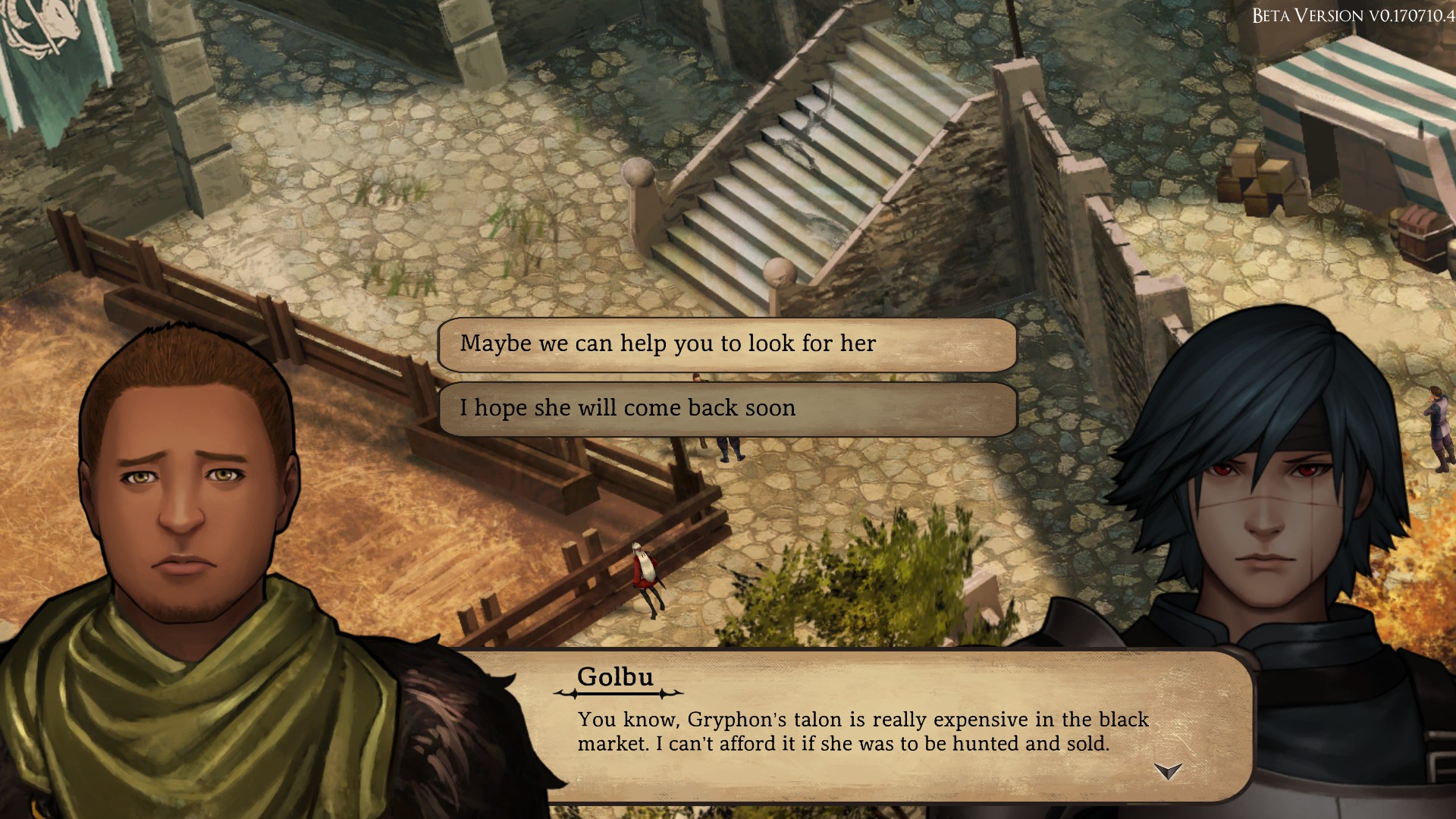
Finn tries hard to protect everyone, but in the end he’s only one man and Aris spends her time being jealous, bitter and ungrateful. Is it part of her upbringing? I spent a lot of time lamenting my interactions with Aris since she looked down on Finn and he took it like a chump. Kael is a thief and a turd, but only Finn sees that and no one gives a crap what he thinks. Sure he “makes up” for it, but first impressions are important folks. The over arching story is neat, but it was hard to enjoy it when the people you walk around with act like a dysfunctional family.
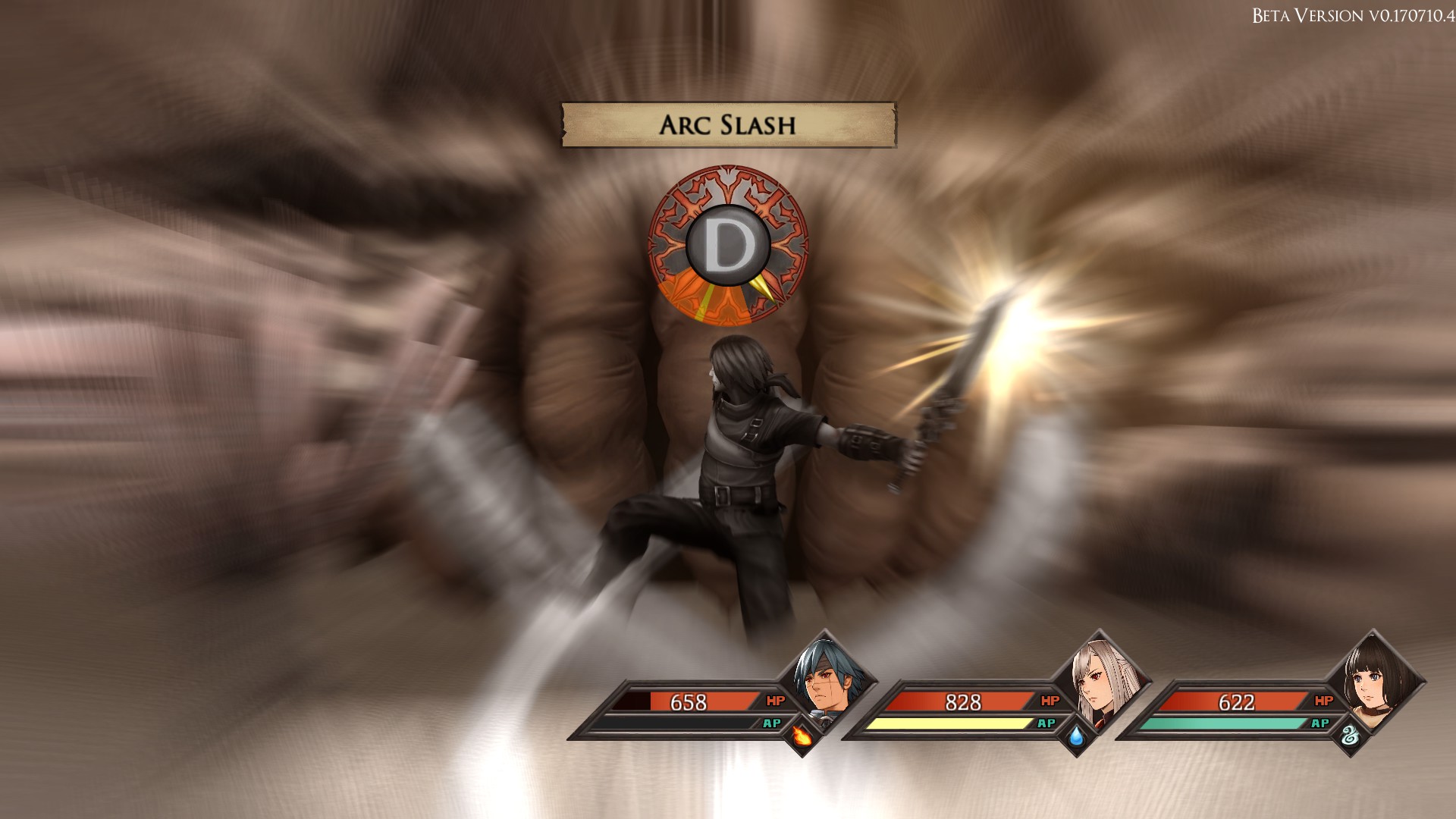
The main thing that stood out to me was the look that SEMISOFT went with. In all honesty, it really bothered me at first, but the painted look for the levels and map really grew on me. I appreciated the love that had to be put into them. The difference between the character models and the level aesthetics is worlds apart though. When they are talking, they are shown as a living 2D image and that’s pretty cool, but I’ve read a bit of people really harping on the models you walk around with. Legrand Legacy isn’t made with UE4 and they move a bit more stiff than what one would expect in a game released more recently. Conversely, since it’s being compared to games that some of us are nostalgic for, this is right in line with some of the movement seen in those very games. They captured it well, so I say “good job”. I wouldn’t have even noticed had it not been brought to my attention.
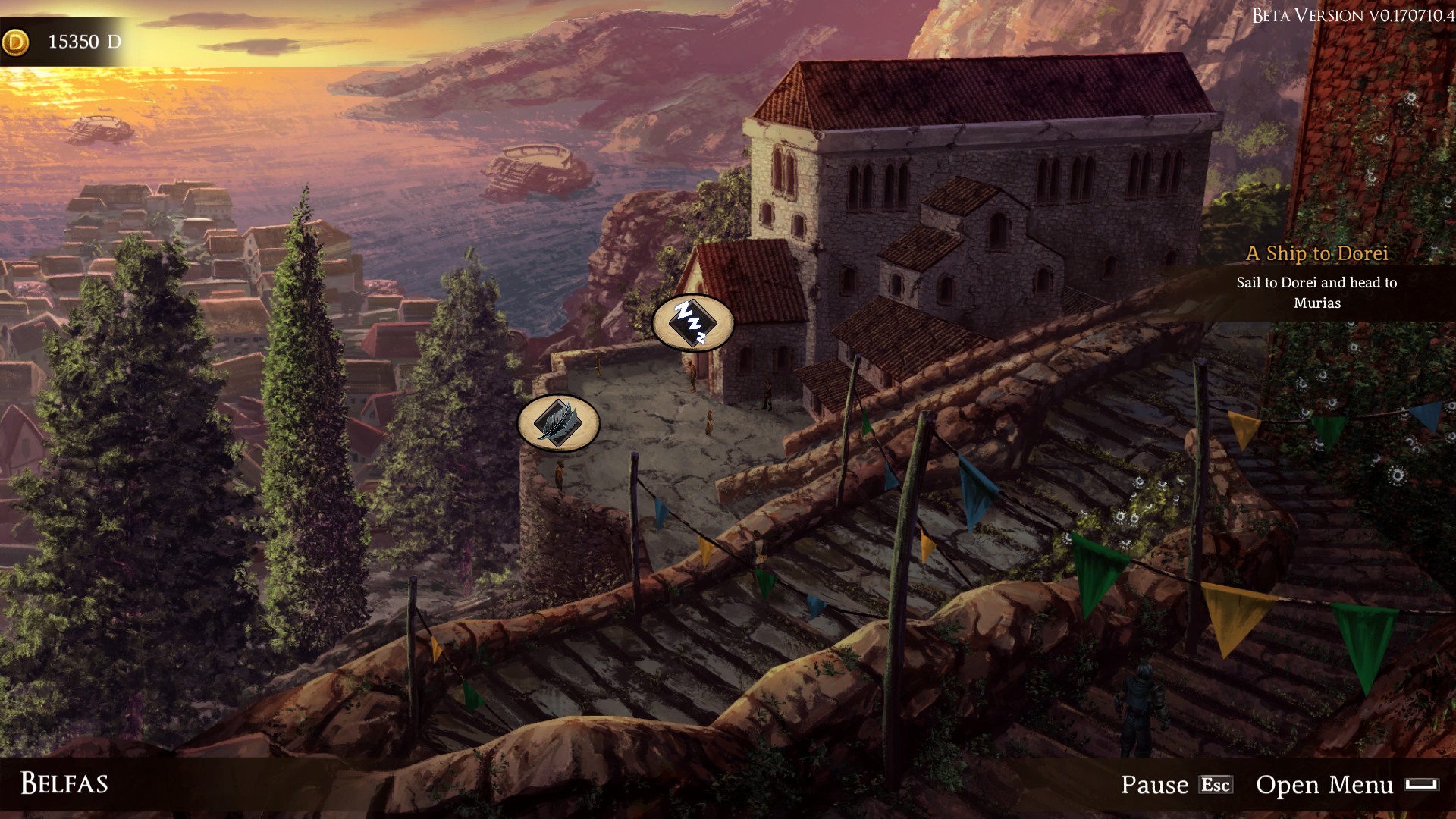
The one negative aspect I’ve experienced with this art style is the movement. On the open world map, it’s more of a top-down perspective and it’s really simple to see where you’re going and the only “hard time” you’ll have is figuring out where your hit-box is and where the map says a corner is. Inside the towns are a completely different story. The perspective given here is a very slanted one. As I mentioned above, it looks great, but that’s not the issue. If you’re walking almost directly up or down there are no issues because the path is clear. There were numerous times where the path is to the left or right and the angle of entry is thinner and the perspective doesn’t lend itself to making this easy. It’s no deal breaker, but I did find myself grumbling a few times as I had to back up three or four times just to walk down some stairs and I had missed the “sweet spot”.
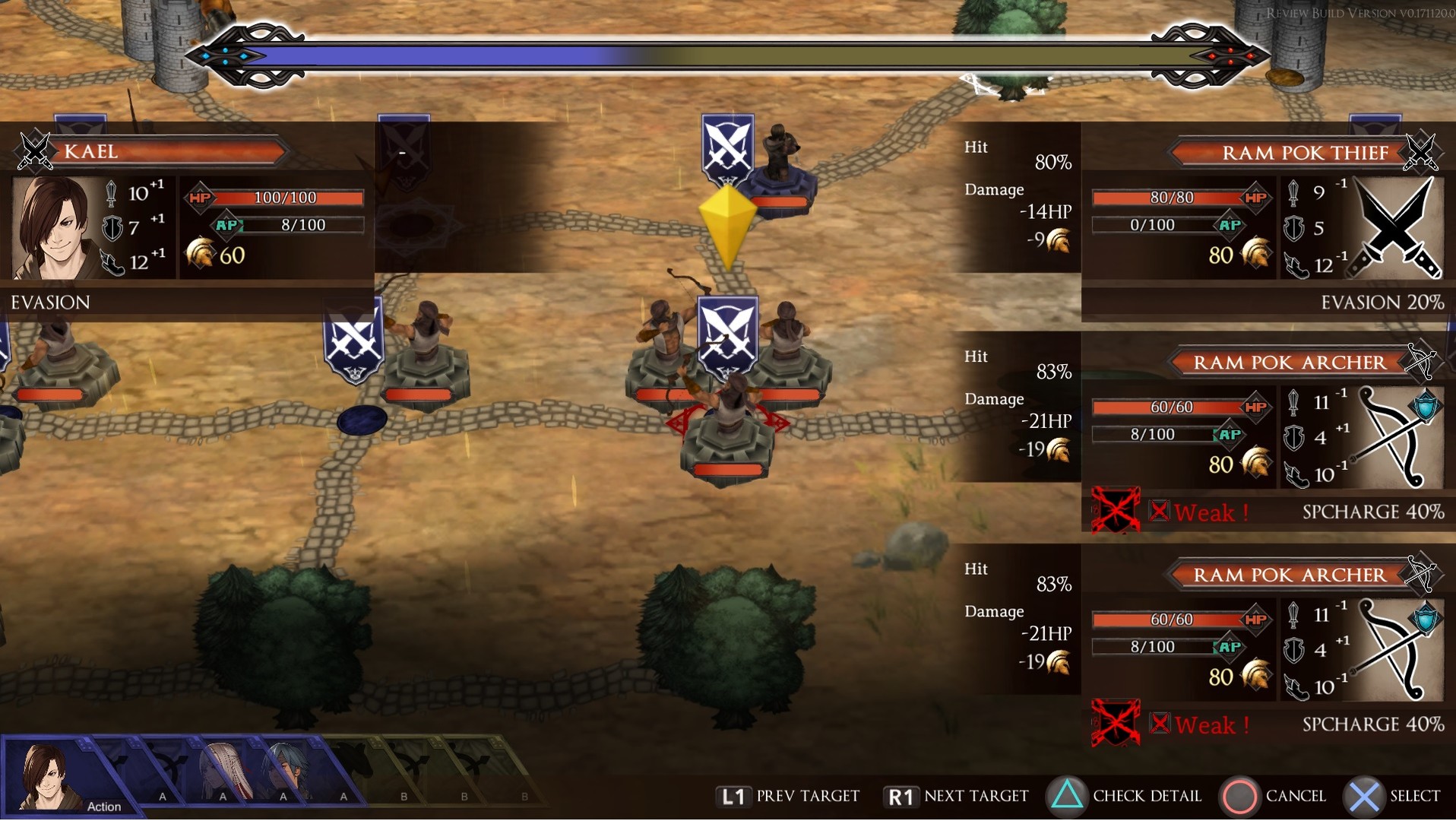
Everything else from here on out ties into the combat. I may sound like I’m reducing every other aspect of the game… and that’s because I am. The combat, in theory is neat, but the execution bothers me. There is a method to it and I believe I understand the reasoning behind it. Of course in real life you would need to defend those with less armor and not simply throw your swords around and hope to win. However, there are a good number of fights in Legrand Legacy that seem to penalize you if you don’t follow that rule to the “T”. Essentially what this does is takes one unit, namely Finn in the beginning, out of combat since he’s in a state of constant defending. On top of that, sometimes the bad guys don’t always go for the guy in front… of course.
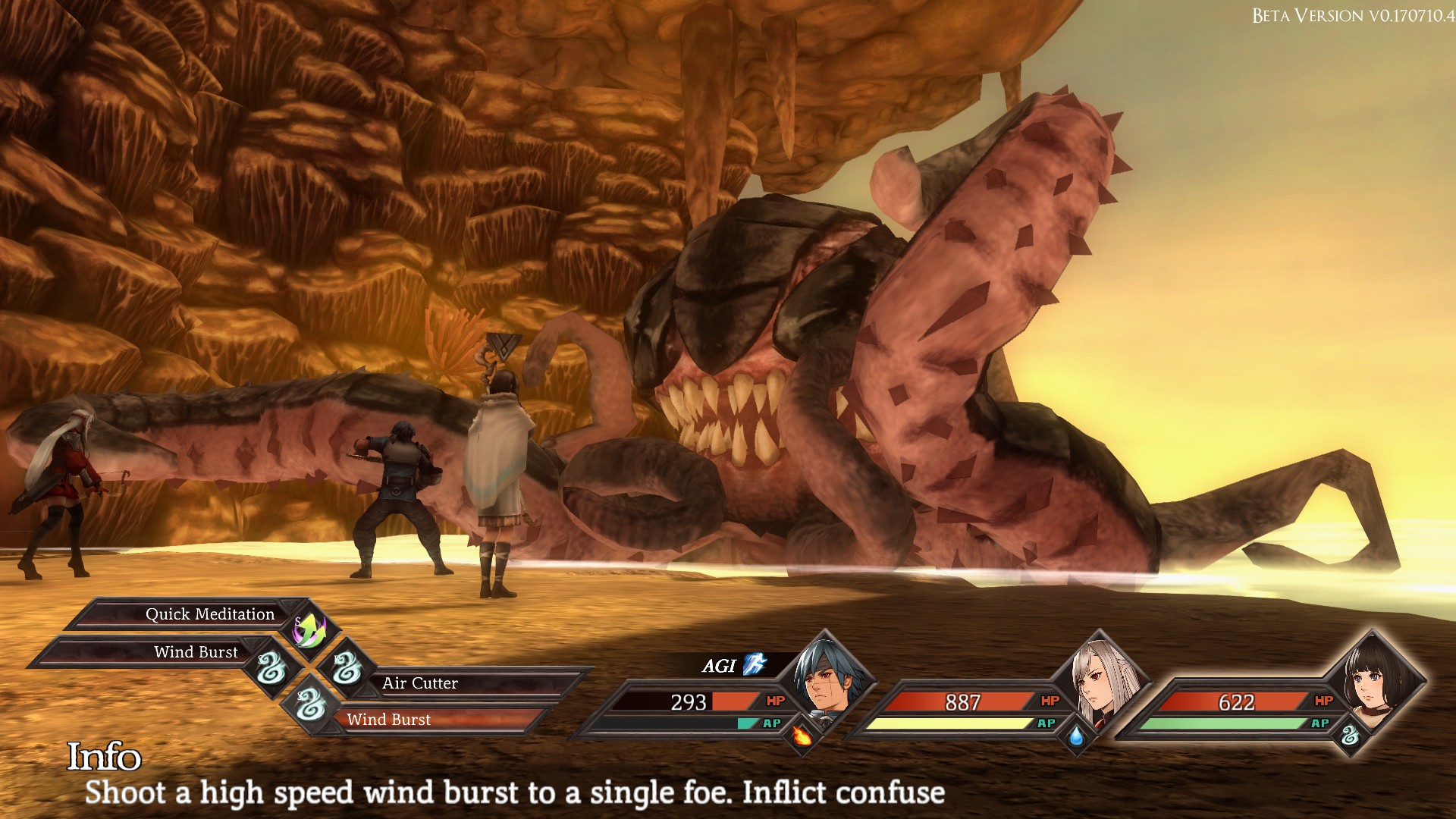
“Why is this such a problem?” you my ask. Other RPGs do have a defense option and it’s fairly useful. All this is true. However, in Legrand Legacy, even non-boss fights can be seriously lethal. As I mentioned above, the combat is done with a timing mechanic and it’s not done with some “which button is going to pop up next!?!” scheme, but the window for perfects is small and hard to hit for me on a regular basis. (There is a bit of a latency difference with using the Steam Link and the PC interchangeably. The PC is more precise and through the Steam link, you’ve got to press it ahead of time. This is just a FYI.) While other games just give you a defense move and take a percentage off, in Legrand Legacy, you deflect damage as well. Taking a good number of hits without perfectly block (thus deflecting all damage back on the baddie) you’ll need to heal. That means you’re either leaving yourself exposed and tanking with your face, essentially negating the “potion” or halting DPS for a turn or two to use an item from an ally to heal you. If it’s a solo fight, then you’re basically tanking with your face and hoping it’s not a special move from your opponent.
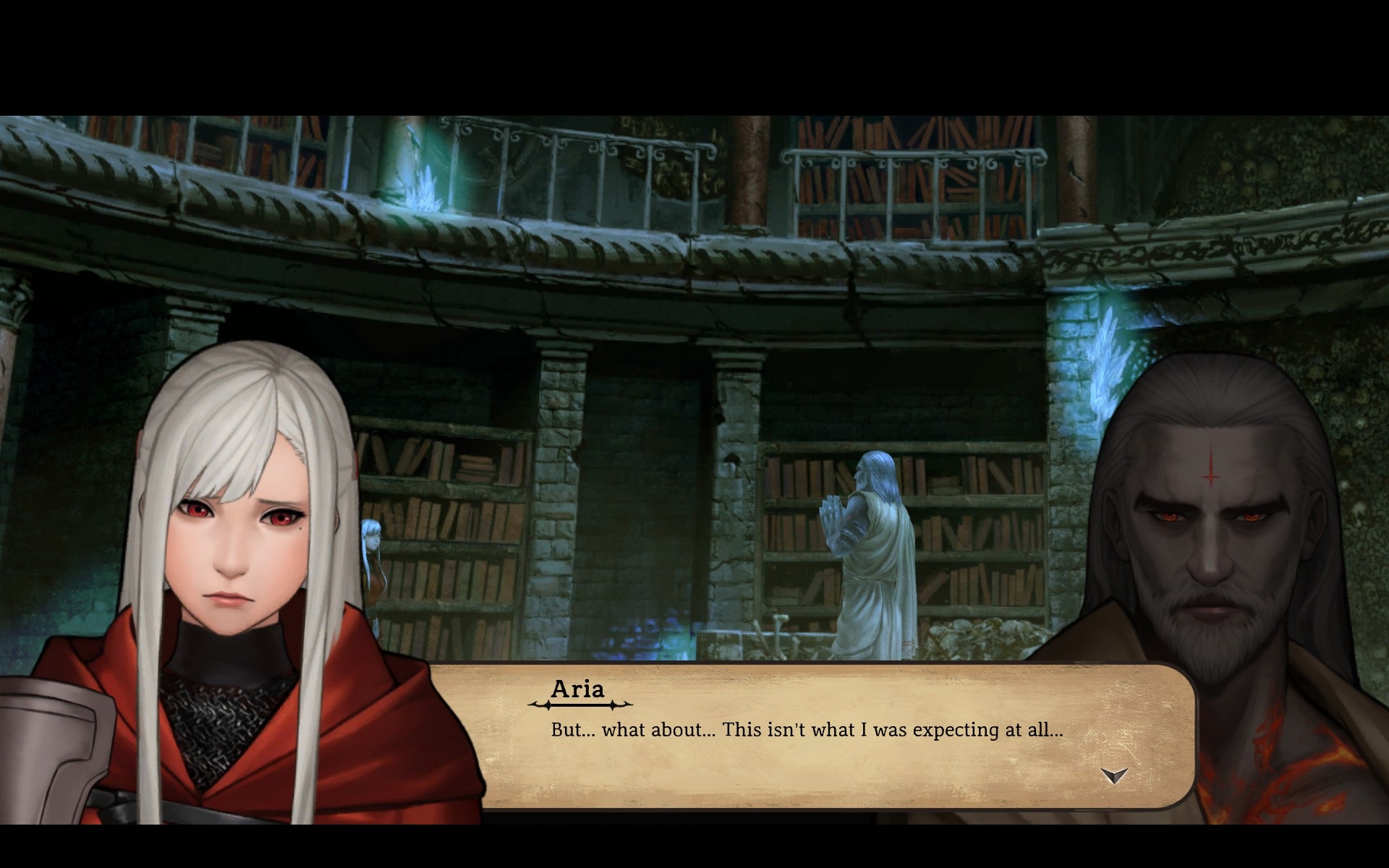
The story in Legrand Legacy is also enjoyable. It’s not super-deep. The writing is in the same boat. It is, however, lengthy. It’s not bad in that regard and going through it once is a good-enough read. The combat comes back at you here because you can only save in certain spots. There have been times where I’ve lost a fight and had to scroll through all of the multiple lines of dialogue from multiple different areas to get back to the same fight and possibly die again only to Groundhog Day it all over again. Some of you may be making a cold cup of “get gud” for me, but this does grate on my nerves after some time.
To get better, one could grind the levels right? Well, you’ll need a convenient place with a resting spot to get your health back. You can find them here and there, but that requires a lot of experience farming to level up all the while experiencing the combat which can be tough at times. It’s not so easy to simply “grind it out” as in other RPGs. If you start getting somewhere you’ll hit another problem: inventory weight management. (Come on…) If you carry over the weight limit you’ll slow down immensely. Walking back into town takes a very long time. Why would you walk though? Just dump some items and continue on right? The items you’d dump are used in making health potions and gear upgrades… and I can’t simply chuck them… so I walk. Realism? Really? Drop the weight limit, I don’t question why I can carry several guns at the same time in other games or why Lara Croft can move so stealthily with all that crap on her. I won’t ask why Finn and crew can carry 6000 rocks either. Just let me carry the world in my pocket and we’re good here.

Further Reading on Legrand Legacy: Tale of the Fatebounds: Facebook / Official Page / Steam / Twitter

